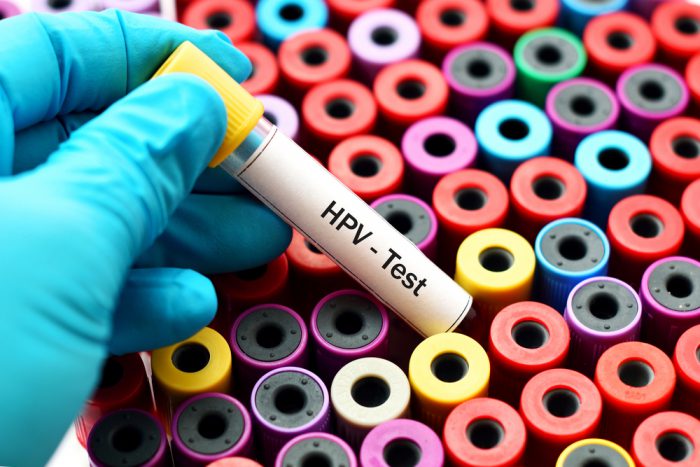
What if you could test for HPV in the comfort of your own home?
That’s something researchers are planning to look into this year. While self-tests for human papillomavirus (HPV) are already available and have been promoted in other countries like the Netherlands and Australia, the National Cancer Institute (NCI) plans to research whether these tests are comparable to tests performed in clinicians’ offices. The study, currently planned for 2021, will include around 5,000 women.
So, how does it work? The self-test comes with a tiny brush attached to a thin stick. To take your sample, you briefly swab your vagina by rotating the brush inside several times to collect cells. Then, simply slide the swab into the specimen container, seal it in a provided envelope, and send it to a lab by mail. The results and recommended next steps would be sent to you within a few weeks. A urine-based HPV test is also being studied.
The ability to self-screen for HPV at home could be game changer for this sexually transmitted infection. HPV is the leading cause of cervical cancer. Nearly 14,000 Americans are expected to be diagnosed with this type of preventable cancer in 2020, with more than 4,000 estimated deaths. HPV vaccination has started to reduce cervical cancer rates, but the vaccine only protects against certain strains of the virus. Self-testing at home would allow for more widespread screening.
Testing for HPV is currently available at clinicians’ offices, but being able to self-test at home would remove some of the key barriers to access, including the cost of an office visit, taking time off of work for an appointment, and arranging childcare. It would also be a good option for women who have avoided pelvic exams due to negative experiences in the past or fears related to sexual violence or trauma.
The study details are still being finalized, but if the results find that self-sampling is comparable to clinician-administered tests in detecting HPV, it could provide another way to manage reproductive health and potentially reduce cervical cancer rates through earlier detection.
Sources:
- NIH Spearheads Study To Test At-Home Screening For HPV And Cervical Cancer: Kaiser Health News, 2020.
- Cancer Stat Facts: Cervical Cancer: National Institutes of Health, 2020.








